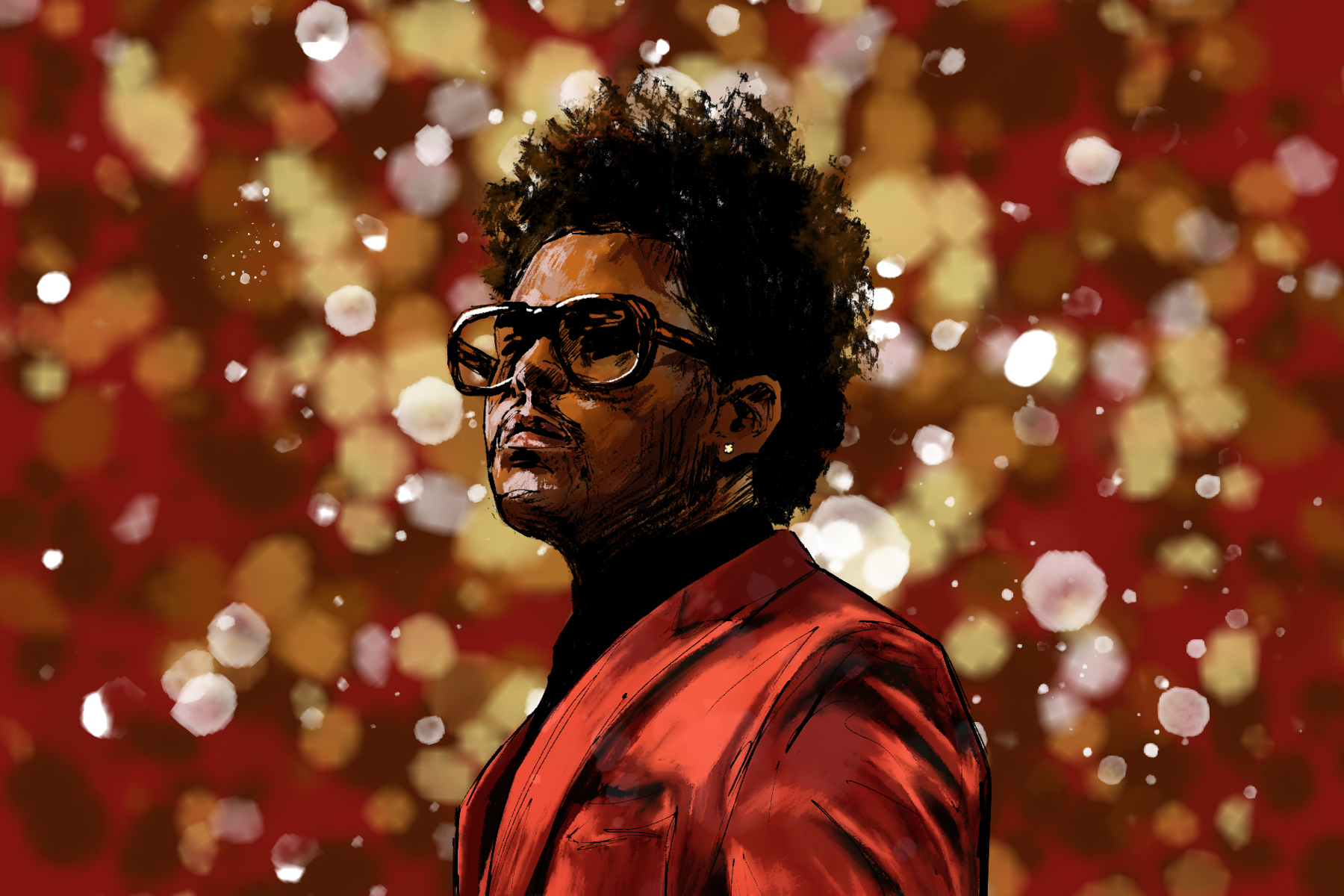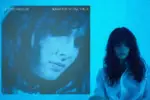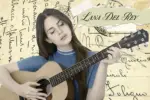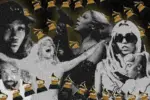When called out for his tendency to spew misogyny in his music and his inability to refrain from calling women bitches all the time, The Weeknd, aka Abel Tesfaye, has defended his lyrical content by claiming that in his songs, he’s portraying a character: The two people (The Weeknd, the musician and Abel Tesfaye, the man behind the art) are separate, and as such, any toxic behavior he brags about ought to be attributed to his persona and not the singer himself.
In an interview with Esquire, as the magazine’s September cover star, the singer revealed: “It’s definitely a character . . . it is me singing the words; it is my writing. It’s like you want people to feel a certain way. You want them to feel angry. You want them to feel sad. You want them to feel. It’s never, like, my intent to offend anybody.” But disseminating such toxic messages about manhood and identity makes the artist suspicious. A man so concerned about his brand and intent on preserving the meticulously curated mystery attached to his persona should find the notion of stripping women down to mere caricatures, sexual objects and props offensive.
After all, lyrics such as “I just f—– two bitches ‘fore I saw you” from 2015’s smash hit, “The Hills”; “Who’s gonna love you like me, like me? . . . Who’s gonna touch you like me? . . . Who’s gonna f— you like me?” from “Shameless”; “Girl I’m just peakin’, I’m just tryna be on top of you” from “All I Know”; “I hope you know this d— is still an option” from “Wasted Times”; “I’m used to bitches comin’ right ‘way” from “Acquainted”; “I’ve been running through the p—–, need a dog pound / Hundred models getting faded in the compound” and “Never need a bitch, I’m what a bitch need” from “Heartless”; and more don’t exactly scream respectful or tactful. In fact, they ring of toxic masculinity.
The Good Man Project defines toxic masculinity as “a narrow and repressive description of manhood, designating manhood as defined by violence, sex, status and aggression,” wherein manliness is defined by emotional toughness, and showing emotional vulnerability is seen as a weakness. The Weeknd’s music is full of references to invulnerability, emotional apathy or numbing, distrust or disinterest in love, and coping with the fear of abandonment, rejection, and insecurity through hard drugs; when he’s not bragging about being a “Starboy,” bragging about cars –– how he just “bought a new Mercedes” –– or celebrating escapism, it seems that he turns to vices and traditional symbols of male power (girls, automobiles, wealth, stardom/fame) when emotional desensitization doesn’t work.
In songs such as “Hurt You” and “I Was Never There,” he bemoans the emptiness of his self-inflicted loneliness and emotional pain, ruminating on his desire to have no-strings-attached sex on “Hurt You,” singing “Girl, I’ll come to put myself between your legs / Not between your heart,” all while simultaneously and callously commending himself for making his partner suicidal during the song’s pre-chorus: “All the nights you slept alone, dryin’ your eyes (’cause of me, baby) / And all the nights you thought about takin’ your life (’cause of me, baby) / And if it’s love you want again, don’t waste your time (don’t you waste) / But if you call me up, I’m f—— you on sight.”
This rich behavior is juxtaposed on “I Was Never There,” wherein the singer laments his own suicidal feelings and the misery produced from lacking genuine romantic companionship. He sings explicitly and miserably: “What makes a grown man wanna cry? (Cry, cry, cry, cry) / What makes him wanna take his life? (Yeah) / His happiness is never real (real, real, real, real) / And mindless sex is how he feels, ooh, he feels.” These songs reveal the truth about The Weeknd: The singer leads a bleak, vapid life –– the price of fame and emotional immaturity that he loves singing about, perhaps.
Moreover, in songs such as “Nothing Without You” and “Die for You,” he professes “when I feel the love, girl, I hesitate” in the former and “I just can’t say I don’t love you / ‘Cause I love you” in the latter, while also protesting his convictions, proclaiming: “I don’t want this feelin’ / I can’t afford love.” His manipulative streak is confirmed in “Die For You” when he writes: “I’m finding ways to manipulate the feelin’ you’re goin’ through.” How romantic. At least his partner knows that as much as he is reluctant to love her, luckily for her, he needs her love to survive, a message he communicates in “Nothing Without You” when he sings “Don’t stop your lovin’ / It’s all I have.”
It’s clear that the singer embodies this toxic masculinity and worse, considers it a strength. Dismissive lyrics such as “I need drugs to love you” from “Smile” with the late rapper Juice Wrld, “Put that cocaine on a plate / Molly with the purple rain” from “Faith,” “And for that p—-, you know I’m a slave . . . LA girls all look the same / I can’t recognize / The same work done on their face” from “Escape from LA” all prove that. So it’s odd that the singer possesses a detachment from his affronted, jaded musical persona, even referring to himself in the third person in the aforementioned interview, saying: “I have a whole vision of the Weeknd.”
Who is the Weeknd, then? And whose vision is he projecting? Is this truly how he wishes the world to view him as an artist? Is the mystique derived from being considered pop music’s resident anti-hero worth the decadence portrayed in his art? Furthermore, where does the braggadocious persona end, and just how real is it? How reflective is it of the Weeknd’s true personal character? How affected is Abel Tesfaye from the world of debauchery and sin that surrounds The Weeknd? I’m sure many of his followers would like to know.
The Weeknd, to many of his fans, seems relatively removed from his persona, acting as if it genuinely is a separate person to the extent that readers and listeners might actually believe him, attributing blame for his dubious content onto his devilish alter-ego.
But they’d be wrong to do so, as his sexist lyrics are so renowned that many people have expressed alarm about their harmful connotations, even rendering them unacceptable for public consumption. The Dallas Observer has recorded some of his most vile lyrics, including the following lines of “Initiation”: “I got a test for you / You said you want my heart / Well, baby you can have it all / There’s just something that I need from you / Is to meet my boys / I got a lot of boys.” This song seems to suggest that a woman who wants to earn The Weeknd’s love and affection must debase herself by participating in a sexual orgy as a certified groupie.
Another song, “High For This,” similarly implies sexual coercion and invitation; lyrics such as “Open your hands / Take a glass / Don’t be scared / I’m right here / Even though you don’t roll” are highly concerning, considering he is encouraging his object of desire to take presumably illegal drugs so as to relax her, in the aim of potentially having sex with her, even though he knows and has already indicated that she’s not the drug-taking type. The singer also reveals he doesn’t have an issue using deception to achieve his objectives when he sings, “the lying comes natural to me,” in “Montreal.”
The idea of one being cajoled, invited or otherwise urged to do this, eager or not, calls into question the idea of informed consent, as the singer is asking the woman to perform sexual favors in a manner that reflects manipulation and unequal gender and power dynamics. It is as if the woman is being volunteered and groomed to perform sexual acts as a service doll, plaything or sacrifice, which is unhealthy and morally twisted.
These lyrics are proof of sexual coercion, sexually aggressive behavior that involves using pressure, alcohol, drugs or emotional manipulation to convince someone to have sex. Coerced consent is not consent in many states, and victims of sexual coercion have been found to suffer from PTSD, anxiety and depression at considerable rates, according to the American Psychological Association (APA).
Other coarse lyrics describe the mechanics of sexual conquest and demonstrate the singer’s satisfaction with a woman’s sexual prowess, such as the following lines of “Glass Table Girls”: “She give me sex in a handbag / I got her wetter than a wet nap.” However, songs such as “Lost in the Fire” cross the line into biphobia, especially when The Weeknd sings “baby, you can bring a friend / She can ride on top your face / While I f— you straight (While I f— you straight).” The song essentially victimizes his partner by perpetuating compulsory heterosexuality and the myth of being able to “correct” a person’s sexuality through conversion or renewed male attention or attraction. This is an incredibly damaging idea that distorts female sexuality and marginalizes bisexual women, as well as serves as a slap in the face to the LGBTQ community — whose members are disenfranchised enough in society without the additional stigma attached to this ignorant rhetoric. His statement also disempowers and degrades women by dismantling the notion of women’s choice and sexual freedom.
Overall, the singer’s music is filled with questionable references about partaking in drugs and using women as a way to feel less empty inside. In the process, his self-destructiveness is channeled into an odd kind of vindictiveness toward women that is hidden behind a mask of confidence, mixed with intense self-loathing and insecurity. This is apparent in songs such as “Call Out My Name” and “Wasted Times,” when he channels the hurt he feels toward the woman who abandoned him (rightfully, it seems) into indifference, going from saying “I almost cut a piece of myself for your life” in the former song to dissing the same woman in the latter song, remarking that “she wasn’t even half of you” –– the elusive “you” being the partner he now regrets leaving for the aforementioned chick.
In the song “Over Now” with Calvin Harris, he attempts to tear down his original woman by saying “I don’t really care if your tears fall down your face / You know you play the victim every time,” a far cry from his desperate begging for her to come back in songs like “Try Me” or “Nothing Without You,” as well as a long way from his amorous sentiments of unconditional love in songs like “Die For You,” where he croons about his willingness to kill for his partner and being ready to let their love stand the test of time and distance. “Nothing Without You” carries a sharper edge due to its underlying ring of emotional manipulation. The singer outright commits emotional blackmail, essentially threatening his partner with suicide or immense guilt when he beseeches her: “Pick up your phone. I got a question. Oh, if I die tonight would you regret it?”
Somehow, he gets even more toxic in songs like “Faith,” where the singer unthinkably, selfishly and explicitly muses about the death of his beloved, darkly crooning: “If I OD, I want you to OD right beside me / I want you to follow right behind me.” Because nothing’s more romantic than wanting your partner to overdose with you. What a modern-day Romeo — this is a love story, not a Shakespearean tragedy! Perhaps the singer is telling the truth when he sings both about having a void and trying to replace it by having “mindless sex” and pursuing women who chase a void in songs such as “Hurt You,” “I Was Never There,” and “Off the Table” –– in this particular song, he admits his flaws, saying: “I was toxic and then I was toxic to someone else.”
He constantly justifies inflicting emotional pain, injury or distress upon women, too, claiming “I don’t wanna hurt you but you live for the pain” in “Shameless,” justifying what appears to be emotional sadism and cruelty by invalidating his victims so they appear to be as emotionally damaged and stunted as he is. For instance, in “Echoes of Silence,” he flippantly sings “Girl, you’re such a masochist,” so as to make his exes appear as jilted or crazy, over-possessive lovers instead of emotionally traumatized women. He does this to absolve himself of wrongdoing, but by disparaging his past partners in his music, he instead further mistreats them.
The Weeknd is braggy about getting cars, girls and money because it’s easy and he’s a Starboy, so why not? But the lights aren’t so blinding when you realize that his lyrics contain a heavy deal of misogyny and downright sexism, and they are so saturated with thinly veiled contempt for women, they appear borderline emotionally abusive and rapey at times.
In his music, women aren’t simply women, they’re bitches, they’re his for the night (and only for the night, as he sings in “Party Monster”), they’re commodities for sale, they’re bodies –– they’re just mouths good for giving head, or sometimes they’re the reason he lives, which, far from making these women saints, puts extreme responsibility on them. This begs the question: Is The Weeknd really just a character, or is Abel Tesfaye’s alter ego the embodiment of his true feelings toward women? Maybe the man behind the character and the man behind the music are one and the same after all.
Perhaps The Weeknd really is the man he warns us about in his music –– someone to shun and run far, far away from. We ought to run for the hills if we accept and, worse, normalize the predatory and misogynistic nature of his music. He tells us himself in “The Birds, Pt. 1”: “Nobody needs to fall in love / I swear I’m just a bird.” Perhaps we should see Abel Tesfaye the same way we see The Weeknd — and what we know of The Weeknd is this, from his own admission: “I’m a prisoner to my addiction / I’m addicted to a life that’s so empty and so cold / I’m a prisoner to my decision.” Let us not be prisoners of his music.















